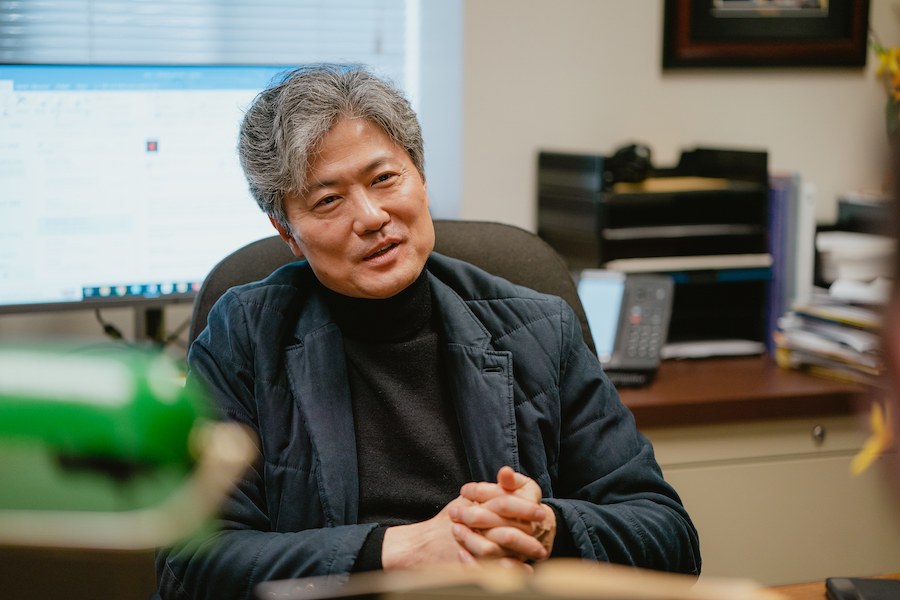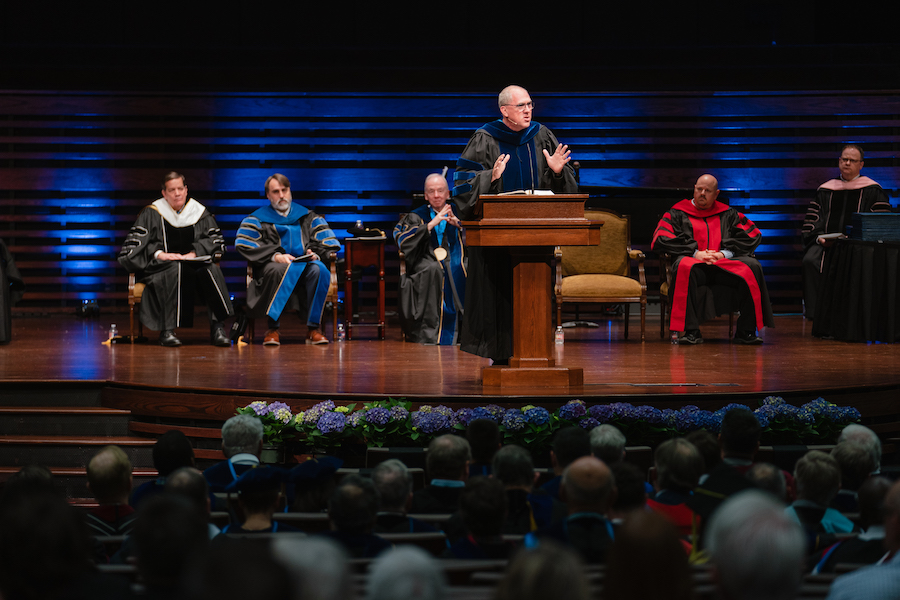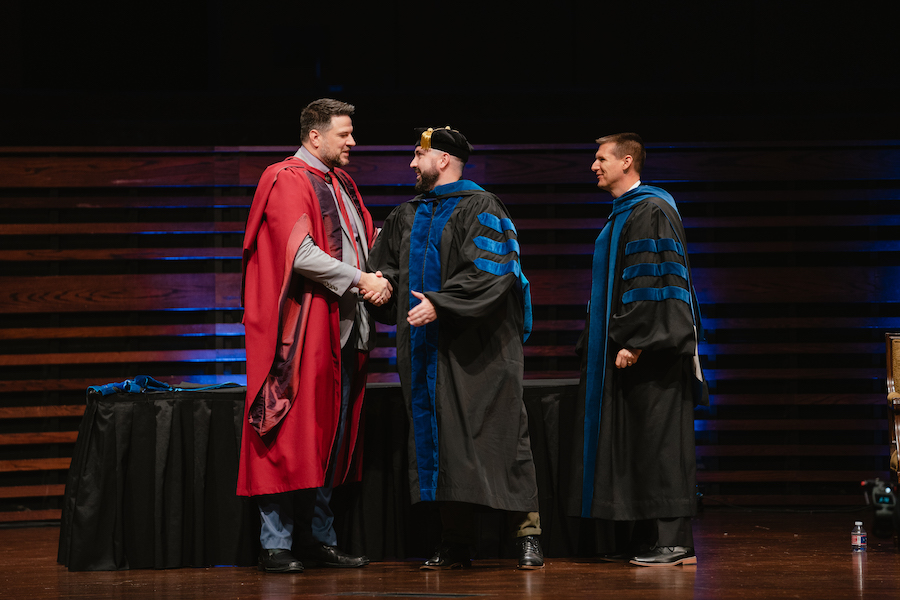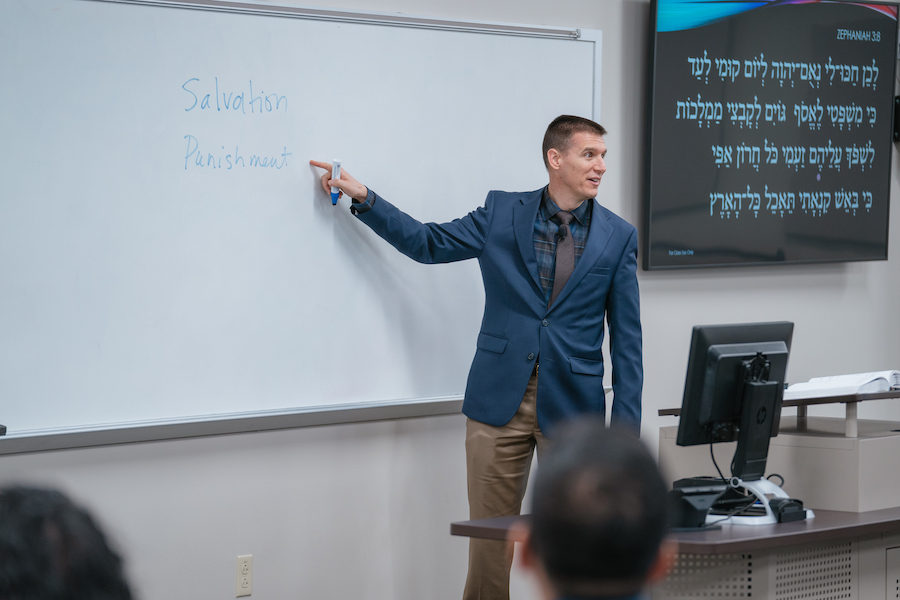Biblical counseling training brings hope to ‘frontline’ ministers in Japan
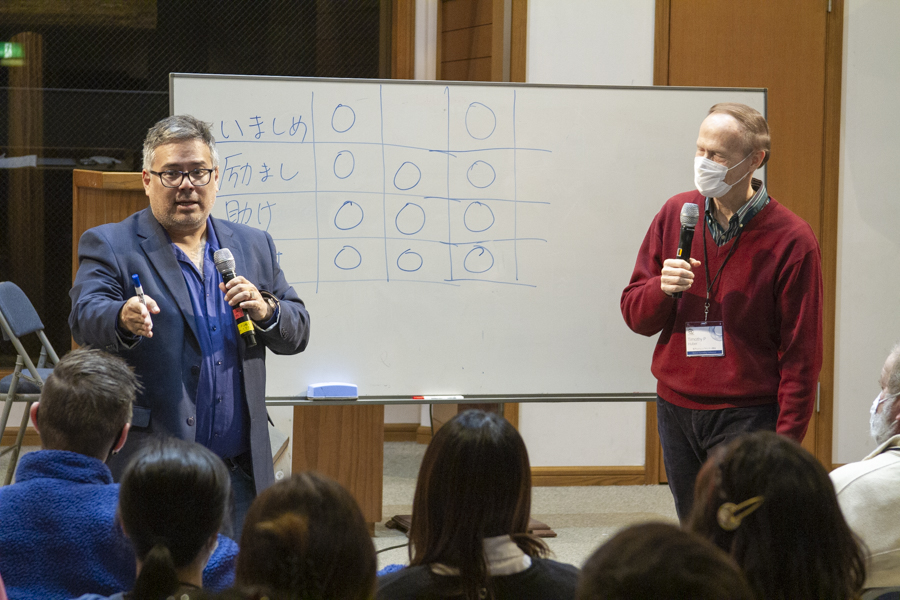
According to the Joshua Project, the Japanese population of 120 million people constitute the second largest unreached people group in the world, with only 0.3 percent identifying as evangelical Christians. Furthermore, Statista revealed that, in 2021, roughly 21,000 individuals in Japan committed suicide. These facts compelled Jon Okinaga, assistant professor of biblical counseling at Southwestern Baptist Theological Seminary, to travel to Japan this past December to train pastors, lay leaders, and missionaries to counsel God’s Word to the lost and broken in this hurting nation.
Okinaga served in partnership with Missions Connex, an organization based in Houston dedicated to mobilizing churches to evangelize communities around the world. Founded by Southwestern Seminary graduate and current Doctor of Ministry student Jair Campos, Missions Connex hosted two biblical counseling training events in Japan, December 5-15, one for Japanese-speaking ministry leaders, and the other for Portuguese-speaking leaders. The conferences took place at Okutama Bible Chalet in the mountains outside Tokyo.
Campos, who completed his Master of Divinity in 2000 and Master of Theology in 2002, took a biblical counseling course with Okinaga two years ago as part of his D.Min. program. When Campos and Bryan Tantzen, chairman of the board for Missions Connex, interviewed ministers in Japan and discerned that counseling training was their greatest need, they turned to Okinaga.
Speaking of his former professor, Campos, originally from Rio de Janeiro, Brazil, said, “I love him. I love his class. I love his style. I love his down-to-earth approach, and the fact that he is a practitioner—he practices what he teaches.”
At the conferences, Okinaga taught the first phase of Southwestern Seminary’s biblical counseling certificate program, covering the why and how of biblical counseling. Among the chief components of this training, which bore special significance for the Japanese ministers, was the hope that biblical counseling provides.
“They can put their hope in the Word, and not put their hope in secular thoughts or anything that isn’t found in Scripture,” Okinaga explained.
Tantzen stated that Japan does not have a “culture of counseling, biblical or secular, so it’s a real gap and a real need that nobody’s addressing.”
He continued, “I think Dr. Okinaga’s approach was really perfect, of everybody can be a counselor, and you’re really listening to people and pointing them to God’s Word and God’s truth and God’s Spirit. And you know, that that’s something everyone can do; every Christian can do.”
Though the conference organizers expected only 15-20 participants, they ultimately hosted 133 ministry leaders from more than 35 cities and towns across Japan. Tantzen called this an “awesome work from God that wildly exceeded my expectations.”

Jon Okinaga, assistant professor of biblical counseling at Southwestern Baptist Theological Seminary, traveled to Japan this past December to train pastors, lay leaders, and missionaries to counsel God’s Word.
In addition to Okinaga’s training, the conferences also featured worship and extended times of prayer for the nation.
Okinaga said, “For them to be able to hang out with other pastors and start the day off with prayer and worship, and learning how God’s Word is sufficient for all things, it gave them hope that they can reach their people back home.”
When attendees were surveyed concerning the prevalence of suicide in their communities, all the participants indicated they knew someone who had taken his own life; one minister indicated that he encountered this issue every week.
Tantzen said this “put on our heart how pervasive this need is, and how we need to come together as a global body of Christ to help solve this.”
Jeff and Kimberly Burns, International Mission Board missionaries in Japan who attended the conference, affirmed that “Japanese churches are dealing with more severe issues with depression, addiction, and loneliness than previously. Pastors and leaders feel the need to be better equipped to counsel these new believers. In a country where less than one percent is Christian, the church is vital to supporting each other through life’s challenges.”
Jeff is a 1995 Master of Arts in Religious Education graduate of Southwestern Seminary, and Kimberly is currently studying toward a master’s in biblical counseling. They presently serve at Kitahama International Bible Church in Osaka, which boasts members from Japan, Korea, Russia, Croatia, Germany, England, and the United States.
They said the biblical counseling conference “gave us tools to help us in discipleship and counseling with this group and in any context where God puts us. We want to be better equipped to help others apply the Word in their journey with Jesus, whether they are on the mountain or in the valley.”

At the conferences, Okinaga taught the first phase of Southwestern Seminary’s biblical counseling certificate program, covering the why and how of biblical counseling. Among the chief components of this training, which bore special significance for the Japanese ministers, was the hope that biblical counseling provides.
Campos said that, at the conclusion of the trainings, attendees approached him with gratitude and tears. They said to him, “We’re exhausted—we’re exhausted with COVID, dealing with depression, dealing with suicide, dealing with so many issues. We just gave up ourselves. Thank you so much for giving us this time of rest, in receiving and being blessed.”
“That, for me, was the highlight of the trip,” Campos said, “to see how we can bless frontline soldiers that are wounded, they’re exhausted, and to provide them a time of rest and care. The way they responded to what we provided was a Holy Spirit, God connection.”
Laressa Izuno, who translated for Okinaga in the Portuguese-speaking conference, wrote to him afterward to express her gratitude for the training. “I could feel God’s presence and love coming from you,” she said. “And I want to thank you once again because you brought hope to us who are so needy. You brought a revival in the heart for us who are here serving in Japan.”
Okinaga said there were “so many blessings” from the trip, including “new friendships, partnerships, and doors opening to serve Japan.”
He noted that all of the attendees plan to participate in phase two of the certificate training online later this semester, and some of the attendees even plan to enroll in Southwestern Seminary’s biblical counseling degree programs. Furthermore, he and adjunct professor Cheryl Bell will lead a suicide prevention webinar for Japanese teens in March, and he plans to return to Japan this summer to lead another phase one certificate training.
“Southwestern has always been known as the evangelism and missions seminary,” Okinaga said. “I’m blessed to be part of a rich tradition of Southwesterners who are able to minister the Gospel to all nations.”
Tantzen extended “a big thank you” to Southwestern Seminary and to Okinaga, specifically, “for the vision of helping Japan and bringing this training that [Japanese ministers] cannot afford to come to America to receive. And the extra work that’s involved in that, and the travel and so forth … it’s an amazing blessing and an amazing need. And I’m just so thankful for that investment by Southwestern and Dr. Okinaga.”
Alex Sibley is a freelance writer for Southwestern Seminary.
